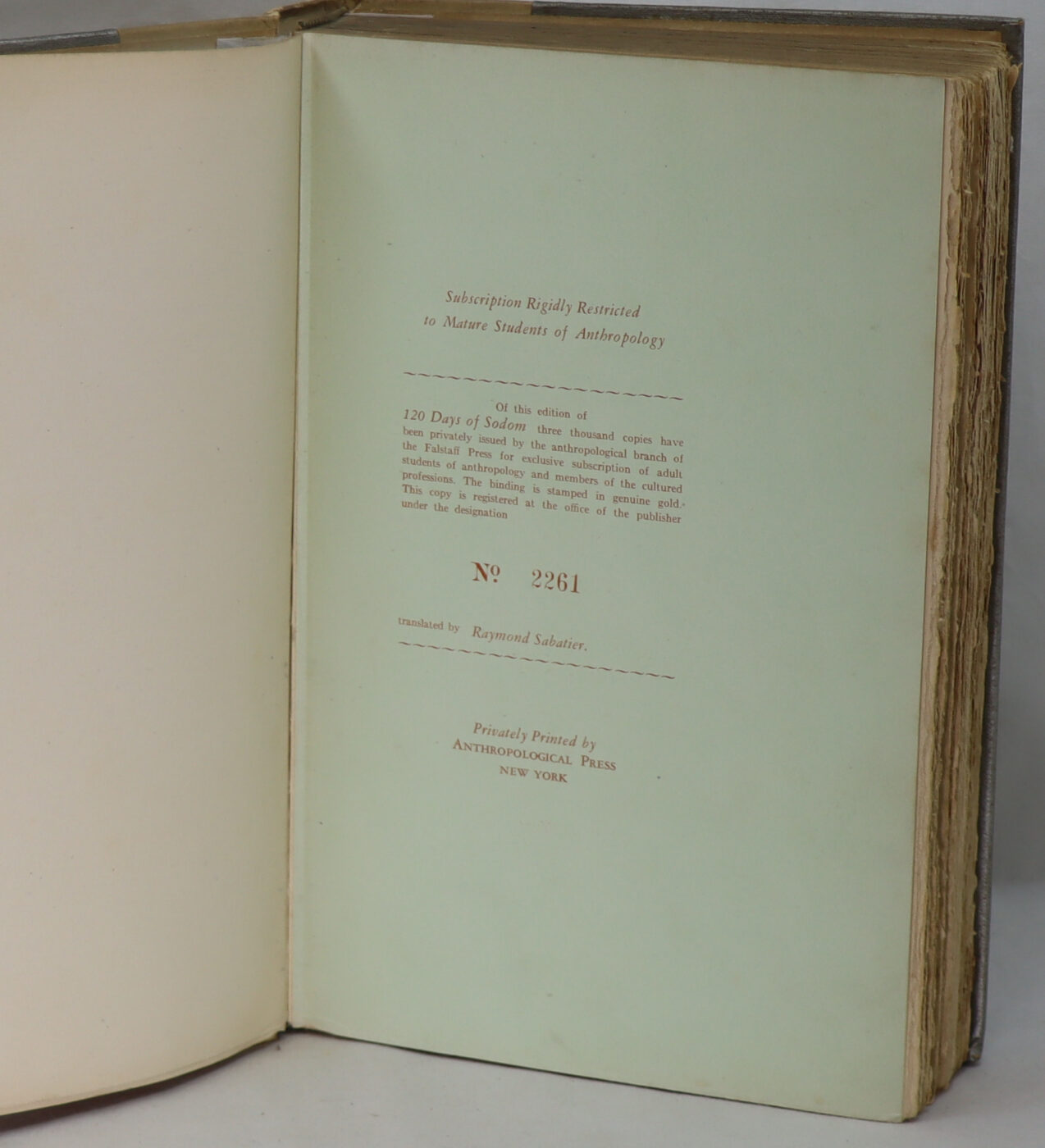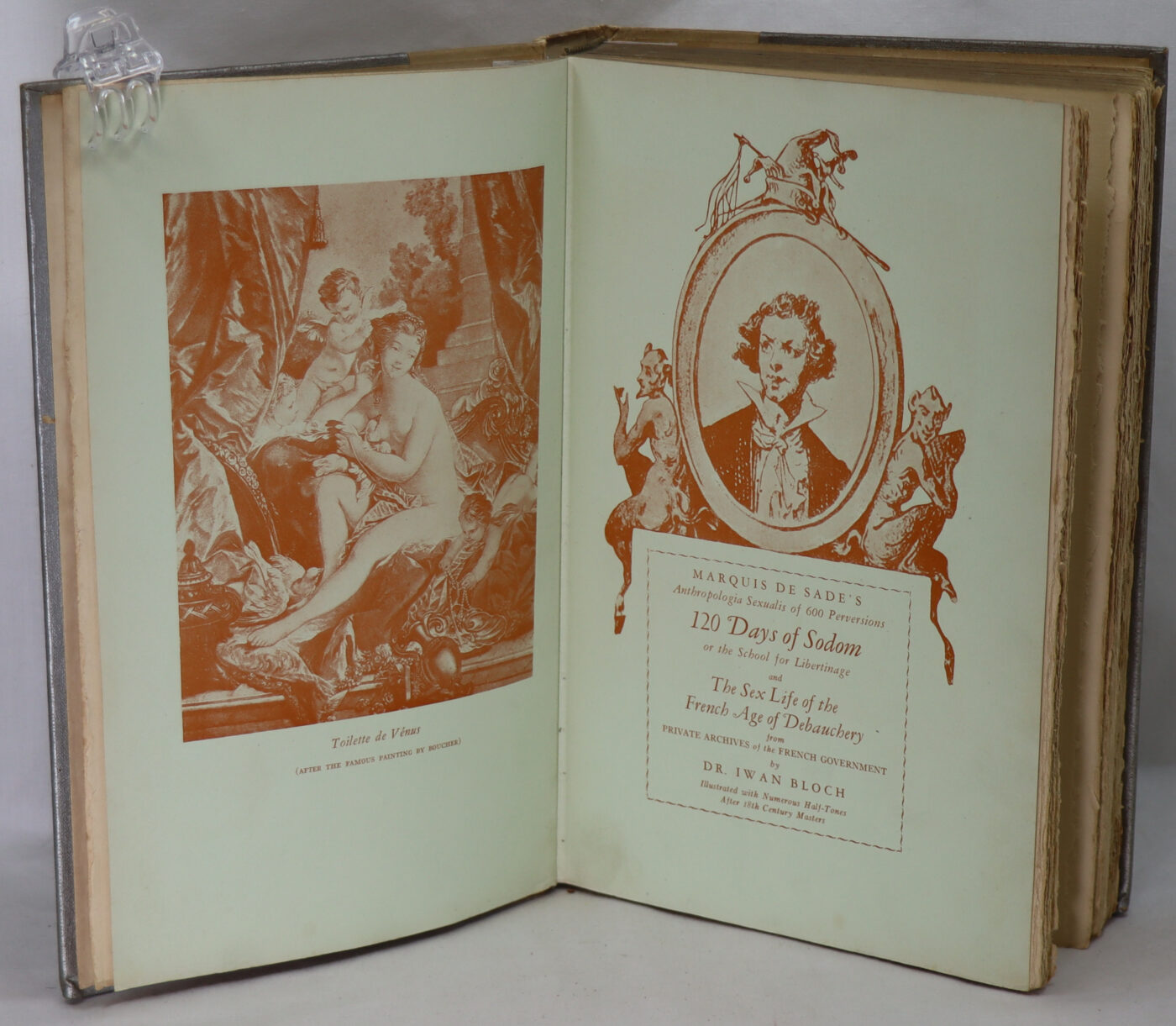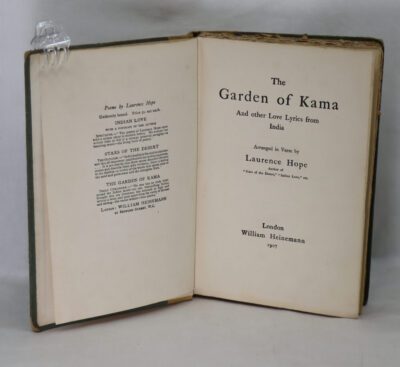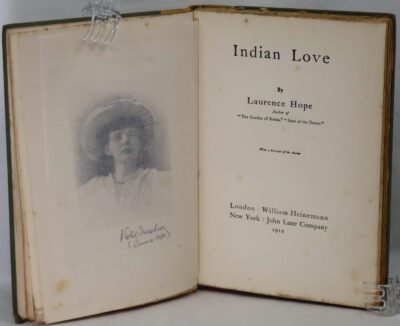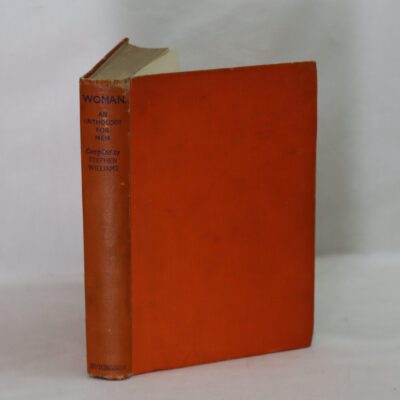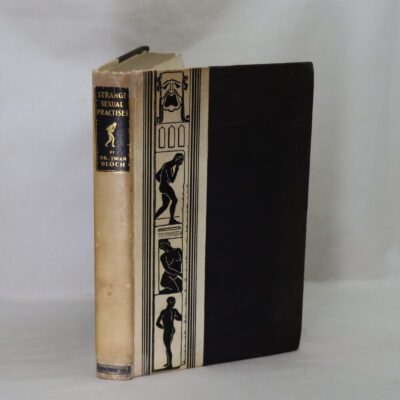120 Days of Sodom.
By Dr Iwan Bloch
Printed: 1934
Publisher: Privately printed. Anthropological Press. New York
Edition: Limited Edition No.2261
| Dimensions | 17 × 26 × 4 cm |
|---|---|
| Language |
Language: English
Size (cminches): 17 x 26 x 4
Condition: Good (See explanation of ratings)
Your items
Item information
Description
Hardback. Tan spine with brown title. Grey cloth boards.
We provide an in-depth photographic presentation of this item to stimulate your feeling and touch. More traditional book descriptions are immediately available
- Note: This book carries a £5.00 discount to those that subscribe to the F.B.A. mailing list
For conditions please view our photographs. Illustrated with numerous half-tones after 18th Century Masters. 320 pp. 1 vols. 8vo. Japan vellum spine and silver cloth. Fine Illustrated with numerous half-tones after 18th Century Masters.
Warning: This book was part of the erotic library gathered by the famous Cambridge Don, computer scientist, food and wine connoisseur, Jack Arnold LANG, along with medical friends and family involved in Freudian research. Sexual instincts or drives have deeply hidden roots in the unconscious mind. Instincts act by giving vitality and enthusiasm to the mind through meaning and purpose. The range of instincts is in great numbers. Freud expressed them in two categories. One is Eros, the self-preserving life instinct containing all erotic pleasures. While Eros is used for basic survival, the living instinct alone cannot explain all behavior, according to Freud. In contrast, Thanatos is the death instinct. It is full of self-destruction of sexual energy and our unconscious desire to die. The main part of human behavior and actions is tied back to sexual drives. Since birth, the existence of sexual drives can be recognized as one of the most important incentives of life. The enclosed book was part of this research. A photograph is enclosed, should you seek further details please contact Martin Frost on martin.frost@gmail.com
The 120 Days of Sodom, or the School of Libertinage (French: Les 120 Journées de Sodome ou l’école du libertinage) is an unfinished novel by the French writer and nobleman Donatien Alphonse François, Marquis de Sade, written in 1785 and published in 1904 after its manuscript was rediscovered. It describes the activities of four wealthy libertine Frenchmen who spend four months seeking the ultimate sexual gratification through orgies, sealing themselves in an inaccessible castle in the heart of the Black Forest with 12 accomplices, 20 designated victims and 10 servants. Four aging prostitutes relate stories of their most memorable clients whose sexual practices involved 600 “passions” including coprophilia, necrophilia, bestiality, incest, rape, and child sexual abuse. The stories inspire the libertines to engage in acts of increasing violence leading to the torture and murder of their victims, most of whom are adolescents and young women.
The novel only survives in draft form. Its introduction and first part were written according to Sade’s detailed plan, but the subsequent three parts are mostly in the form of notes. Sade wrote it in secrecy while imprisoned in the Bastille. When the fortress was stormed by revolutionaries on 14 July 1789, Sade believed the manuscript had been lost. However, it had been found and preserved without his knowledge and was eventually published in a restricted edition in 1904 for its scientific interest to sexologists. The novel was banned as pornographic in France and English-speaking countries before becoming more widely available in commercial editions in the 1960s. It was published in the prestigious French Pléiade edition in 1990 and a new English translation was published as a Penguin Classic in 2016.
The novel attracted increasing critical interest after World War II. In 1957, Georges Bataille said it “towers above all other books in that it represents man’s fundamental desire for freedom that he is obliged to contain and keep quiet”. Critical opinion, however, remains divided. Neil Schaeffer calls it “one of the most radical, one of the most important novels ever written”, whereas for Laurence Louis Bongie it is “an unending mire of permuted depravities”.
Iwan Bloch (8 April 1872 – 21 November 1922), also known as Ivan Bloch, was a German dermatologist, and psychiatrist, psychoanalyst born in Delmenhorst, Grand Ducal Oldenburg, Germany, and often called the first sexologist.
Together with Magnus Hirschfeld and Albert Eulenburg, Bloch is known for having proposed the new concept of a science of sexuality (Sexualwissenschaft) or sexology. In 1906 he wrote in German the book Das Sexualleben unserer Zeit in seinen Beziehungen zur modernen Kultur which was translated as The Sexual Life of our Time in its Relations to Modern Civilization, a complete encyclopedia of the sexual sciences in their relation to modern civilization.
He is also known for having discovered the Marquis de Sade’s manuscript of The 120 Days of Sodom, which had been believed to be lost, and published it under the pseudonym Eugen Dühren in 1904. He had previously published Marquis de Sade: his life and works. In 1899 under the same pseudonym, which he used later for the publishing of more works about Sade and Rétif de la Bretonne.
Early life: Bloch came from a Jewish family. His father Louis Bloch (1846–1892) was a cattle dealer from Bassum who had a total of five children with his wife Rosa Lisette Rosette, née Meyer (1845–1921).
Legacy: According to Sigmund Freud, Bloch’s studies were instrumental in the development of the anthropological approach to the theory of sexuality. Before Bloch, homosexuality was analyzed using a pathological approach.
Donatien Alphonse François, Marquis de Sade French: [2 June 1740 – 2 December 1814) was a French writer, libertine, political activist, and nobleman best known for his libertine novels and imprisonment for sex crimes, blasphemy, and pornography. His works include novels, short stories, plays, dialogues, and political tracts. Some of these were published under his own name during his lifetime, but most appeared anonymously or posthumously.
Born into a noble family dating from the 13th century, Sade served as an officer in the Seven Years’ War before a series of sex scandals led to his detention in various prisons and insane asylums for most of his adult life. During his first extended imprisonment from 1777 to 1790, he wrote a series of novels and other works, some of which his wife smuggled out of prison. On his release during the French Revolution, he pursued a literary career and became politically active, first as a constitutional monarchist then as a radical republican. During the Reign of Terror, he was imprisoned for moderatism and narrowly escaped the guillotine. He was re-arrested in 1801 for his pornographic novels and was eventually incarcerated in the Charenton insane asylum, where he died in 1814.
His major works include The 120 Days of Sodom, Justine, Juliette and Philosophy in the Bedroom, which combine graphic descriptions of sex acts, rape, torture, murder, and child abuse with discourses on religion, politics, sexuality, and philosophy. The word sadism derives from his fictional characters who take pleasure in inflicting pain on others.
There is debate over the extent to which Sade’s behavior was criminal and sadistic. Peter Marshall states that Sade’s “known behaviour (which includes only the beating of a housemaid and an orgy with several prostitutes) departs greatly from the clinical picture of active sadism”. Andrea Dworkin, however, argues that the issue is whether one believes Sade or the women who accused him of sexual assault.
Interest in his work increased in the 20th century, with various authors considering him a precursor to Friedrich Nietzsche, Sigmund Freud, surrealism, totalitarianism, and anarchism. Many prominent intellectuals, including Angela Carter, Simone de Beauvoir, and Roland Barthes, published studies of his work, and numerous biographies have also been produced. Cultural depictions of his life and work include the play Marat/Sade by Peter Weiss and the film Salò, or the 120 Days of Sodom by Pier Paolo Pasolini. Dworkin and Roger Shattuck have criticized the rehabilitation of Sade’s reputation, arguing that it promotes violent pornography likely to cause harm to women, the young and “unformed minds”.
Condition notes
Want to know more about this item?

Related products
Share this Page with a friend

